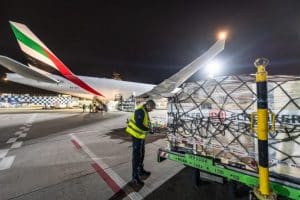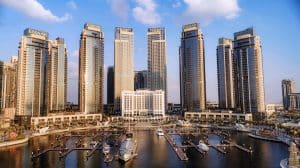
The British economy suffered its biggest decline in more than 300 years in 2020 as the coronavirus pandemic closed shops and restaurants, devastated the travel industry and curtailed manufacturing.
The economy shrank 9.9% last year, more than twice the figure for 2009 at the height of the global financial crisis, the Office for National Statistics said Friday. The drop is the largest since 1709, when a cold spell known as the Great Frost devastated what was then a largely agricultural economy.
The data comes as Britain’s economy remains shackled by restrictions designed to combat COVID-19. A rebound in growth during the fourth quarter has been stifled by England’s third lockdown, which has closed schools, restaurants and non-essential shops since mid-December. Tough restrictions also remain in place in Northern Ireland, Scotland and Wales.
“Today’s figures show that the economy has experienced a serious shock as a result of the pandemic, which has been felt by countries around the world,” the U.K.’s top treasury official, Chancellor Rishi Sunak, said in a statement. “While there are some positive signs of the economy’s resilience over the winter, we know that the current lockdown continues to have a significant impact on many people and businesses.”
Sunak said he would announce new plans to protect jobs and bolster the economy when he delivers his annual budget statement to the House of Commons on March 3.
COVID-19 has hit Britain’s economy harder than most other industrialized democracies. French GDP shrank 8.3% last year, Germany 5% and the US 3.5%.
The GDP figures show the breadth of the pandemic’s economic impact in Britain.
The service sector, which accounts for about 80% of the UK economy, shrank 8.9% last year, with output from accommodation, food and beverage businesses down more than 55% from February levels. Manufacturing fell 8.6% and construction 12.5%.
In hopes of relaxing the restrictions that have devastated the economy, the UK has moved to rapidly vaccinate its most vulnerable residents. More than 13.5 million people, or about 20% of the population, had received at least one dose of COVID-19 vaccine by Wednesday.
Andy Haldane, chief economist for the Bank of England, said the vaccination drive is helping Britain turn a corner in its battle against the virus. Lifting COVID-19 restrictions is likely to unleash a wave of spending by consumers and businesses that will trigger a rapid recovery later this year, he said.
“A decisive corner is about to be turned for the economy, too, with enormous amounts of pent-up financial energy waiting to be released, like a coiled spring,” Haldane wrote in the Daily Mail.
But that optimism comes against the backdrop of Europe’s deadliest coronavirus outbreak, with more than 115,000 deaths recorded so far.
“These figures confirm that not only has the U.K. had the worst death toll in Europe, we’re experiencing the worst economic crisis of any major economy,” said Anneliese Dodds, the opposition Labour Party’s spokesperson on economic issues. “Businesses can’t wait any longer. The Chancellor needs to come forward now with a plan to secure the economy in the months ahead, with support going hand-in-hand with health restrictions.”
G7 LEADERS DISCUSS RECOVERY: Finance ministers and central bank heads from the Group of Seven (G7) industrialised nations discussed climate change and how best to ensure recovery from the economic impact of the coronavirus pandemic on Friday.
Following is the text of a statement published by Britain’s finance ministry, which hosted the gathering online.
“The Chancellor today called on his international counterparts to make climate and nature considerations a central part of all economic and financial decision-making in 2021.
“Chairing his first meeting of the G7 Finance Ministers and Central Bank Governors under the UK Presidency, Chancellor Rishi Sunak set out his priorities for the year ahead which also include protecting jobs and supporting the global economic recovery, working to reach a global solution to the tax challenges created by digitalisation of the economy and providing necessary support for the world’s most vulnerable countries.
“Hosting the meeting alongside Governor of the Bank of England Andrew Bailey, the Chancellor urged his counterparts to match the UK’s ambitions ahead of COP26, and stressed the importance of working together to support a smooth and effective transition of our economies to net zero.
“Ministers and Central Bank Governors exchanged views on how best to shape and respond to the phases of the global recovery from Covid-19, including supporting workers and businesses in dealing with the pandemic while ensuring sustainability in the long term.












